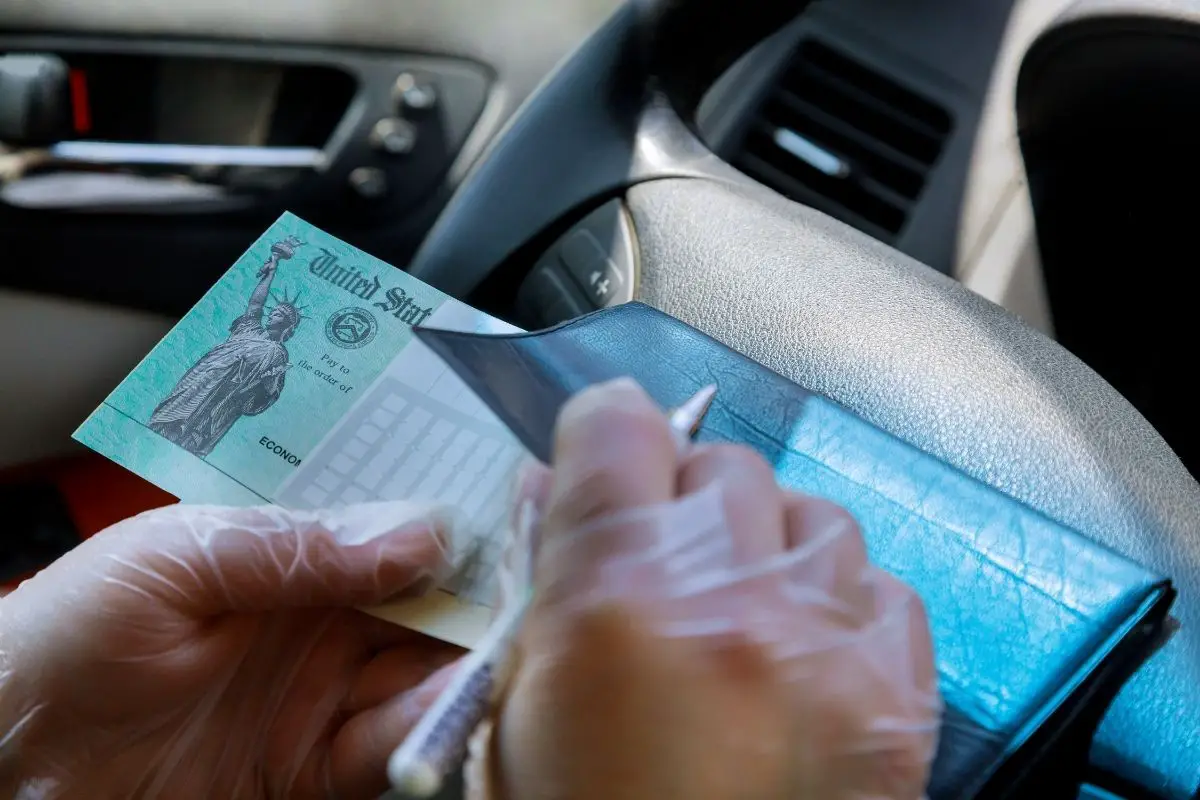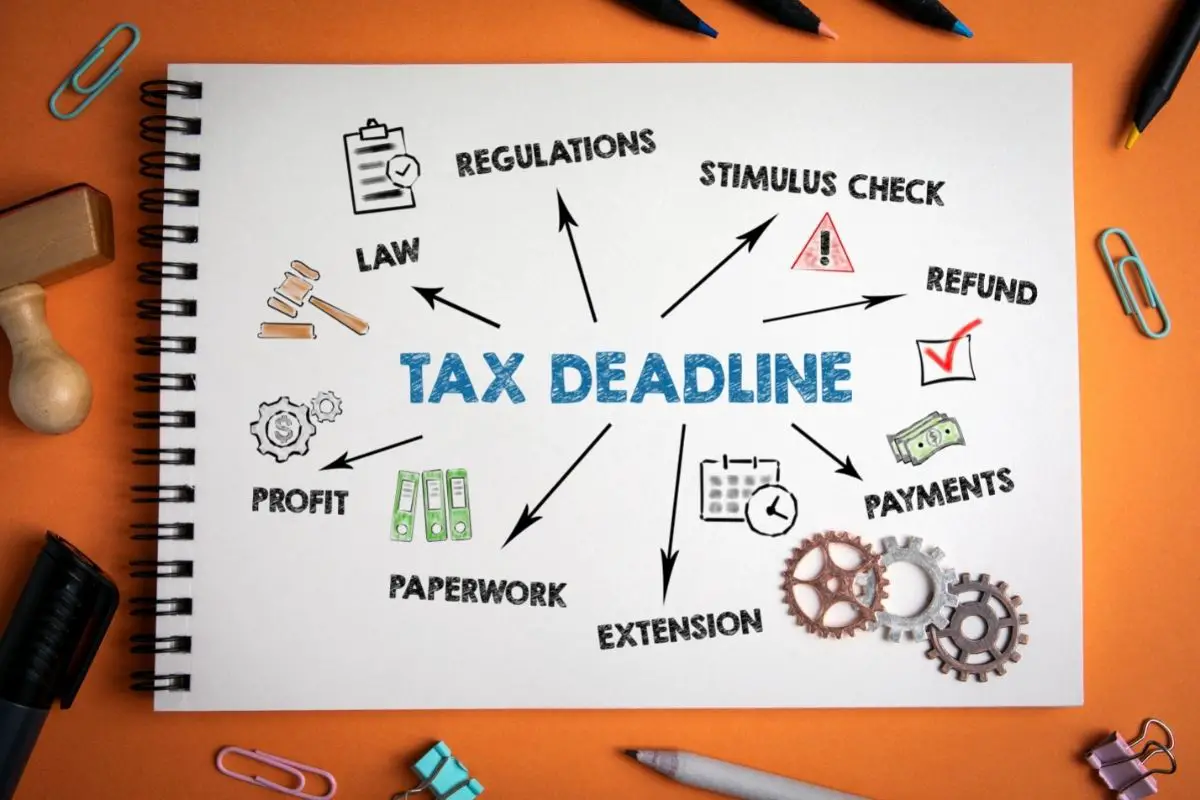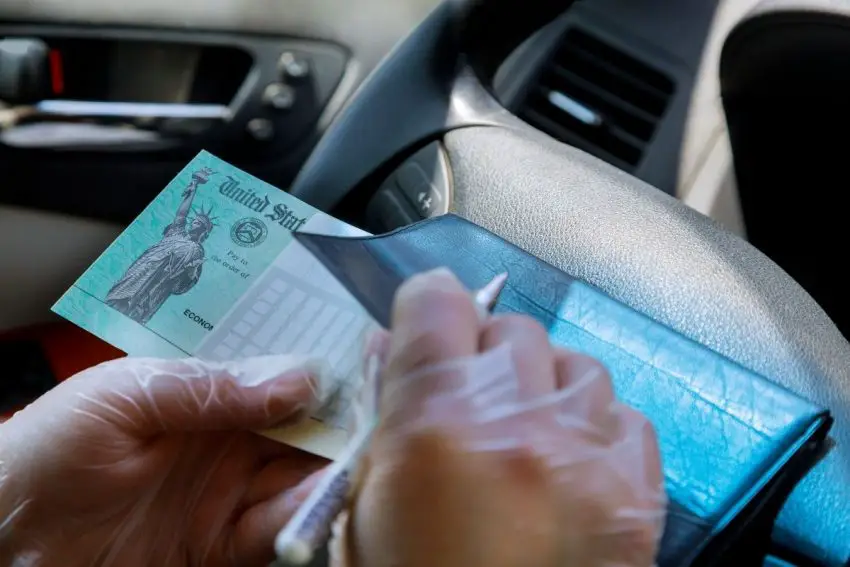For many Americans, stimulus checks have been a saving grace.

In times of trouble and financial hardship, these payments have helped keep millions of Americans afloat, and they’ve also helped boost economic activity and growth to keep the country ticking over.
Unfortunately, not everyone is eligible for a stimulus check. If you’ve got outstanding taxes that need to be paid, you may be wondering whether or not the IRS considers you eligible for payment.
In this article, we’ll discuss stimulus check eligibility and restrictions and clear up any confusion for people with overdue taxes. So, stick with us to find out whether or not your outstanding debts impact your eligibility.
Contents
What Is A Stimulus Check?
Stimulus checks are a sum of money given by the U.S government to taxpayers with the intention of increasing their spending power and boosting economic growth and activity.
Stimulus checks can either be mailed directly to taxpayers, or equivalent tax credit is given when the tax is filed.
Stimulus checks are a form of fiscal policy, meaning the government uses them with the intention of altering the country’s economic conditions.
During the coronavirus pandemic, the IRS issued three stimulus checks (or Economic Impact Payments) for those eligible. These rates were $1,200 in April 2020, $600 in December 2020/January 2021, and $1400 in March 2021.
Who Is Eligible For A Stimulus Check?
Eligibility for stimulus checks is determined by the IRS, and it’s based on your Adjusted Gross Income (AGI). Your Adjusted Gross Income is your gross income minus adjustments to your income.
Your gross income includes dividends, wages, retirement distributions, capital gains, and other income. Adjustments can be student loan interest, alimony payments, and educator expenses.
Generally speaking, people in these qualifying thresholds will be eligible for a stimulus check:
- Individuals earning more than $75,000 and under
- Individuals earning more than $75,000 but less than $99,000. If a married couple is filing jointly, this changes to $150,000 but less than $198,000)
- Those who receive a stimulus payment can also receive an additional $500 per child
You’ll also be eligible if:
- You’re a U.S. Citizen or resident alien
- You are not dependent on a tax-paying citizen
Can I Get A Stimulus Check If I Owe Taxes?
You’ll still be eligible for a stimulus check if you owe taxes. Your stimulus checks are also protected from state and federal debts, including past-due child support.
However, rules may differ if you’re claiming previous stimulus checks as the Recovery Rebate Credit, which we’ll explore later.
The American Rescue Plan, which was authorized in the last distribution of stimulus checks, protects all payments from offset. So, even if you have past-due taxes, you’ll still get the full amount of your stimulus check.
However, stimulus checks are not protected against non-government debt, which can include medical bills or credit card debts. So, once the stimulus money enters your bank account, it may still be seized.
What Is Recovery Rebate Credit?
If you missed a stimulus payment or got less than the amount expected, you may be able to claim this amount back through the Recovery Rebate Credit.
You can do this even if you don’t normally file taxes. This recovery rebate credit can reduce the amount of taxes you owe or be included in your tax refund.
Although stimulus checks have been protected against state and federal debt offsets, the same rules don’t apply if you’re claiming your stimulus checks as a tax credit (Recovery Rebate Credit).
Unfortunately, this stimulus tax credit can be used to offset debts, including past-due child support and taxes. You’ll be given a mailed notice before this happens.
However, when we say ‘past-due’, this means taxes or child support payments that are overdue for this year.
So if you have past-due taxes from a few years before you apply for the Recovery Rebate Credit, this will not be taken from your payment. Here’s a brief breakdown to explain what your stimulus check can and cannot be used for.
Third Stimulus Check
- Federal back taxes cannot be taken
- State back taxes cannot be taken
- Past-due child support cannot be taken
- Past-due federal student loans cannot be taken
- Overpayment of federal benefits cannot be taken
- Overpayment of unemployment benefits cannot be taken
- Private debt (such as medical bills and credit card debt) can be taken
Recovery Rebate Credit For 1st And 2nd Stimulus Checks
- Federal back taxes cannot be taken
- State back taxes can be taken
- Past-due child support can be taken
- Past-due federal student loans cannot be taken
- Overpayment of federal benefits can be taken
- Overpayment of unemployment benefits can be taken
- Private debt (including medical bills and credit card debt) can be taken
Are Stimulus Checks Taxable Income?
The IRS doesn’t consider stimulus checks taxable income. Receiving stimulus checks will also not impact your income level to determine eligibility for benefits or assistance programs run by the government.

However, if you receive your stimulus income in the form of a tax credit, it will be wrapped up with your tax refund.
When Do Stimulus Payments Stop?
Once income exceeds specific AGI levels, the payments are phased out or reduced. So, if you have an AGI in the brackets below, you will no longer be eligible for stimulus payments.
- $120,000 (if you’re filing as the head of a family)
- $160,000 if you’re married and submitting a joint return or if you’re filing as a qualified widow or widower
The Bottom Line
Good news – even if you have overdue tax payments, you’ll still be eligible for a stimulus check.
However, your stimulus check won’t be protected against private debts, and if you apply through Recovery Rebate Credit, there’s no guarantee that your overdue taxes won’t be taken from your payment.
Remember: if you’re unsure whether or not you’re eligible for a stimulus payment, check the AGI level guidelines above.





